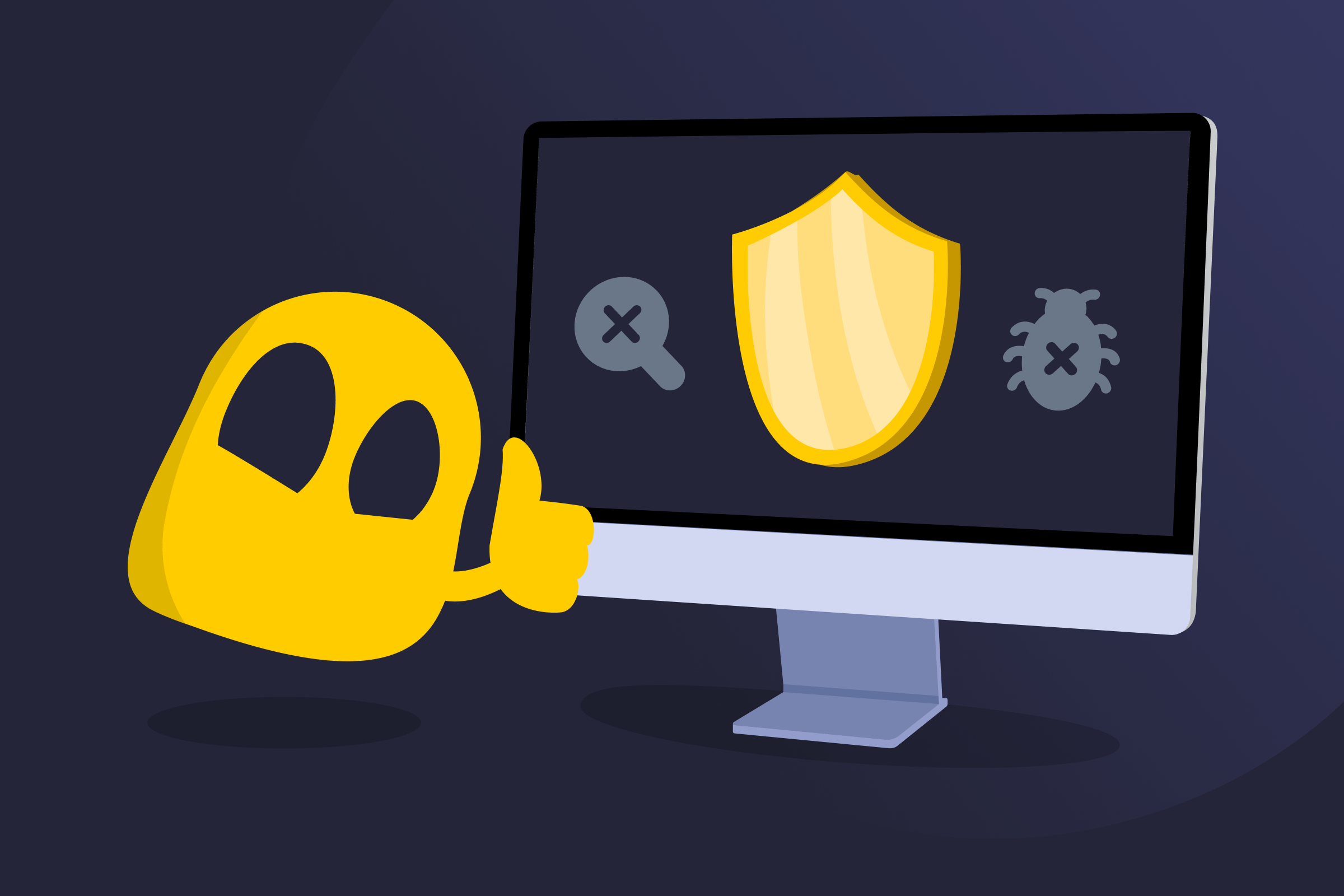Anti-Spyware

Anti-Spyware Definition
Anti-spyware is specialized software that monitors a device for spyware, which is malicious software that secretly collects information about the user. Anti-spyware software prevents detected spyware from causing further damage and then attempts to remove it entirely. Because it focuses specifically on spyware, anti-spyware software often comes bundled with other security tools that address different threats.
How Anti-Spyware Works
Most anti-spyware programs offer real-time protection, which monitors files and activity as they’re accessed and responds immediately to suspicious behavior. Many tools also support scheduled or on-demand scans of commonly used parts of the device’s storage. A full disk scan is also available, but because it scans the entire device, it takes more time. Anti-spyware uses multiple methods to determine if a suspicious file is actually spyware:
- Signature-based detection: Compares files against a database containing signatures, byte sequences, and file hashes associated with known spyware. It’s very effective against known threats but weaker against new ones.
- Behavior-based (heuristic) detection: Analyzes a program’s behavior for any potentially malicious activity. For example, the program could hide its actions, modify the device’s registry, or access the keyboard or webcam without permission.
- Reputation-based flagging: Checks suspicious files against a cloud database. If a large number of users report downloading the same file without any problems, it’s probably safe.
- Machine learning: Trains AI models on large datasets containing both spyware and “clean” files. The trained models can recognize patterns in complex and evolving spyware more efficiently than a simple heuristic engine.
After detecting a malicious file, the anti-spyware isolates or “quarantines” the file in a special folder where it can’t run. Quarantine allows users to inspect and restore the file in case it’s a false positive.
Types of Anti-Spyware
- Standalone anti-spyware: Focuses specifically on spyware. It’s often used alongside a traditional antivirus to double-check results.
- Full security suite: Contains other tools, such as an antivirus, a firewall, phishing protection, and more. The components can share heuristic engines and malware databases to improve threat detection.
- Cloud-based platform: Maintains a spyware database on the cloud. The platform typically uses machine learning to analyze spyware reported by user devices and respond to new threats more efficiently.
- Specialized anti-spyware: Targets a specific type of spyware, like keyloggers or spyware targeting webcams and microphones.
Anti-Spyware Tips
- Update anti-spyware software regularly so it can learn to detect the newest threats.
- Run full disk scans periodically to detect any spyware that might be hiding from the anti-spyware.
- Combine anti-spyware with other security tools to mitigate more complex threats involving malware or unauthorized access.
- Don’t combine multiple anti-spyware tools on the same device. They could interfere with and detect each other as false positives.
- Be careful online, and don’t click on suspicious links. Some nefarious sites or ad pop-ups may try to install spyware.
Read More
FAQ
Anti-spyware and antivirus programs overlap, but they’re not identical and protect against different types of malware. Antivirus programs detect and remove viruses, worms, and other self-replicating malware. Anti-spyware focuses on spyware, which is malware that secretly gathers information from an infected device.
Anti-spyware software uses resources like RAM and processing power, so it can cause slowdowns, particularly on older, weaker devices. However, it also depends on the type of anti-spyware used. For example, cloud-based anti-spyware uses a database in the cloud, which might be faster than a spyware database in local storage.
Running more than one anti-spyware program isn’t recommended. Anti-spyware regularly analyzes files and moves them around into quarantine. Another anti-spyware program could detect this behavior and interpret it as spyware activity, so multiple anti-spyware programs would interfere with each other and cause problems.

 45-Day Money-Back Guarantee
45-Day Money-Back Guarantee